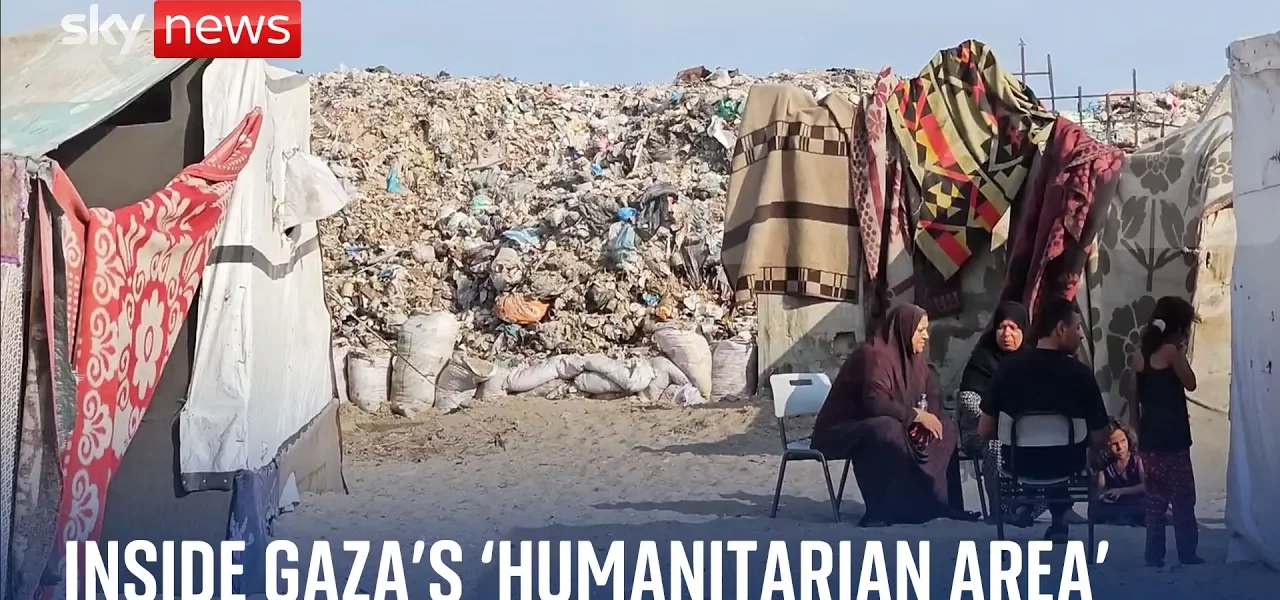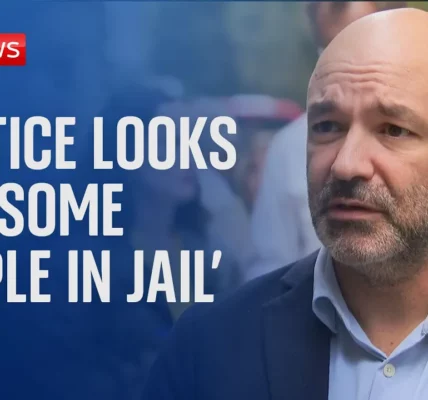The Humanitarian Crisis in Gaza: Life in Al-Mas’i

This article examines the severe humanitarian situation in Gaza, focusing on Al-Mas’i, where nearly 1.9 million people are crammed into a small area amidst dire living conditions and health risks.
Introduction
In the heart of Gaza, a small strip known as Al-Mas’i has become a refuge for nearly 1.9 million people, all seeking safety amid escalating violence and destruction. This area, originally designated as a humanitarian zone by Israeli authorities, has turned into a makeshift cemetery, where the living coexist with the dead. The situation has reached a critical point, forcing civilians into living conditions that are not only overcrowded but also hazardous to their health and well-being. This article delves into the complexities of life in Al-Mas’i, examining the impact of military evacuation orders, the health crisis, and the urgent need for humanitarian intervention.
The Overcrowding Crisis in Gaza
Gaza has long been known for its high population density, but recent events have exacerbated this issue. The Israeli military’s evacuation orders have forced civilians to flee to areas that are already beyond capacity, leading to a humanitarian nightmare.
Evacuation Orders and Their Consequences
In October, the Israeli military issued orders for civilians to move south of the Wadi Gaza River, declaring the northern parts of Gaza off-limits. This directive has had profound implications:
- Increased population density in southern Gaza, particularly Al-Mas’i.
- Worsening living conditions as more people are squeezed into a limited space.
- Growing tensions and desperation among the displaced population.
Health and Sanitation Issues
The living conditions in Al-Mas’i are not only cramped but also perilous due to inadequate sanitation and health risks. With more than 70% of Gaza declared off-limits, areas such as Al-Mas’i have become increasingly uninhabitable.
Impact of Poor Sanitation
Residents face severe sanitation challenges, leading to a range of health problems:
- Piles of garbage and untreated sewage are prevalent.
- Increased incidence of diseases due to unsanitary conditions.
- Reports of skin infections and rashes caused by exposure to contaminated environments.
Health Risks
Health risks are a major concern, with the potential outbreak of diseases such as:
- Cholera
- Polio
- Various skin conditions
These health risks are further compounded by the inability of local healthcare facilities to cope with the influx of patients, leading to an exacerbation of the public health crisis.
The Psychological Toll on Civilians
The psychological impact of living in such dire conditions cannot be understated. Civilians, especially children, are subjected to extreme stress and trauma.
Daily Life in Al-Mas’i
Residents of Al-Mas’i have adapted to their surroundings as best they can, but the situation remains grim:
- Many families are forced to sleep near graveyards, which adds to their distress.
- The smell of decomposing bodies is a constant reminder of the loss they face.
- Children find it difficult to sleep and cope with their surroundings.
International Response and the Need for Ceasefire
As the situation in Al-Mas’i becomes increasingly intolerable, calls for international intervention grow louder. The UN has voiced concerns about the humanitarian crisis and the urgent need for a ceasefire.
Advocacy for Change
The UN Chief in Gaza has briefed international leaders about the dire situation, emphasizing the importance of a ceasefire:
- Continued advocacy is necessary to bring attention to the plight of civilians.
- International pressure on Israel may help alleviate some of the immediate suffering.
- Humanitarian aid is urgently needed to address the basic needs of those in Al-Mas’i.
Conclusion
The humanitarian crisis in Gaza, especially in Al-Mas’i, highlights the urgent need for international intervention and a ceasefire. With overwhelming overcrowding, health risks, and psychological distress, the situation is critical. As we reflect on the plight of these civilians, it is essential to advocate for their rights and well-being. We must call for action to ensure that the people of Gaza receive the support they desperately need. For further information on the humanitarian situation in Gaza, please refer to our related articles.
“`




